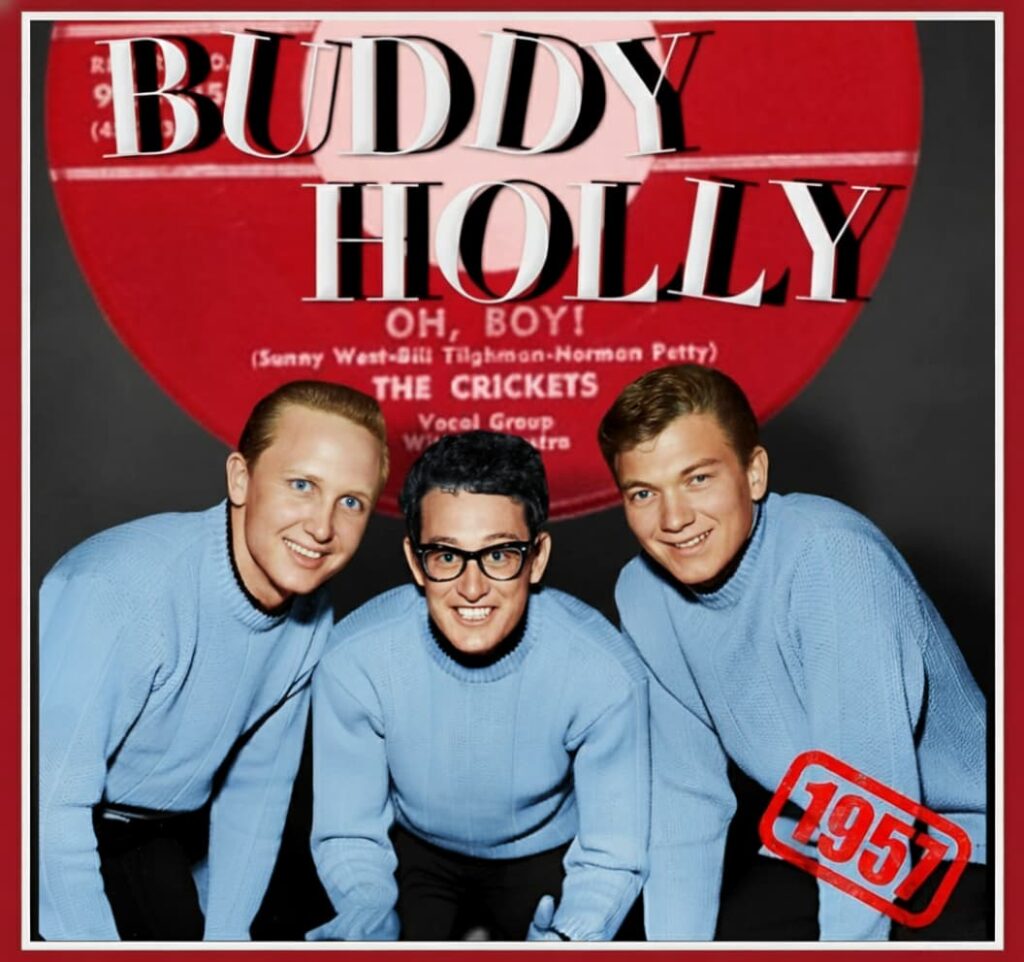
A Nostalgic Glimpse Back at Pure Fifties Rock and Roll
A youthful, exuberant declaration of all-consuming romantic infatuation.
For those of us who remember the dawn of rock and roll—the raw, untamed energy that suddenly burst forth onto the airwaves and flipped the world on its head—few names evoke such a bittersweet pang of nostalgia as Buddy Holly. And among the stellar, all-too-brief run of hits he left us, the bright, boisterous, and utterly irresistible “Oh, Boy!” holds a special, sunny place in the soundtrack of our youth. It’s a song that captures the spirit of the late 1950s—the innocence, the dizzying excitement of first love, and the foundational sound of what would become a musical revolution.
The track was officially released as a single on October 27, 1957, credited to The Crickets (Buddy’s established band name with Brunswick Records, distinct from the solo work released as Buddy Holly on Coral). The flip side was the enduring classic “Not Fade Away,” making this a powerhouse two-sided hit that etched itself into the popular consciousness. The reception was immediate and thrilling: “Oh, Boy!” soared up the charts, peaking at number 10 on the US Top 100 Sides and climbing even higher across the pond to hit number 3 on the UK Singles Chart in early 1958. It was a key track from The Crickets’ only studio album released during Holly’s lifetime, the seminal The “Chirping” Crickets (November 1957).
The genesis of “Oh, Boy!” is a fascinating little piece of rock and roll history that speaks to the collaborative nature of the era. It was originally written by songwriter Sonny West and Bill Tilghman under the title “All My Love,” and West even recorded his own version at the now-legendary Norman Petty Recording Studios in Clovis, New Mexico. However, it was the keen ear and innovative production of Norman Petty—who also took a co-writing credit on the version we know—that brought the song to Buddy Holly and The Crickets. Holly, with his unmistakable hiccuping vocals and trademark driving rhythm guitar, transformed it. The title and some lyrics were changed, adding that essential ‘Holly’ punch and turning it into the concise, kinetic blast of energy that remains unforgettable.
The meaning of the song is beautifully simple and universal: it’s a pure, unrestrained expression of euphoria and delight in a romantic relationship. Lines like “All my love, all my kissing, you don’t know what you’ve been missing” are not complex poetry, but they are direct, relatable, and delivered with such a palpable rush that they perfectly encapsulate the head-over-heels feeling of young love. It’s an ode to the simple, overwhelming joy that one person can bring into another’s life.
Beyond the charts and the credits, what truly resonates, especially with us older listeners, is the sound. That sharp, rockabilly beat, the almost frantic energy of the rhythm section, and the iconic, slightly echoey production perfected by Petty—it all instantly transports you back to sock hops and soda fountains. It’s a song that dared to be a little bit edgy for its time; in fact, there’s a famous anecdote that Ed Sullivan himself found the track a touch too provocative for his wholesome television audience. Imagine that! What we hear today as a wonderfully clean, infectious classic was, in 1957, a lively, slightly “bawdy” challenge to the musical status quo, a genuine piece of the rock and roll rebellion. It’s this blend of groundbreaking sound and simple, heartfelt emotion that makes “Oh, Boy!” a timeless snapshot of a musical giant in his prime.